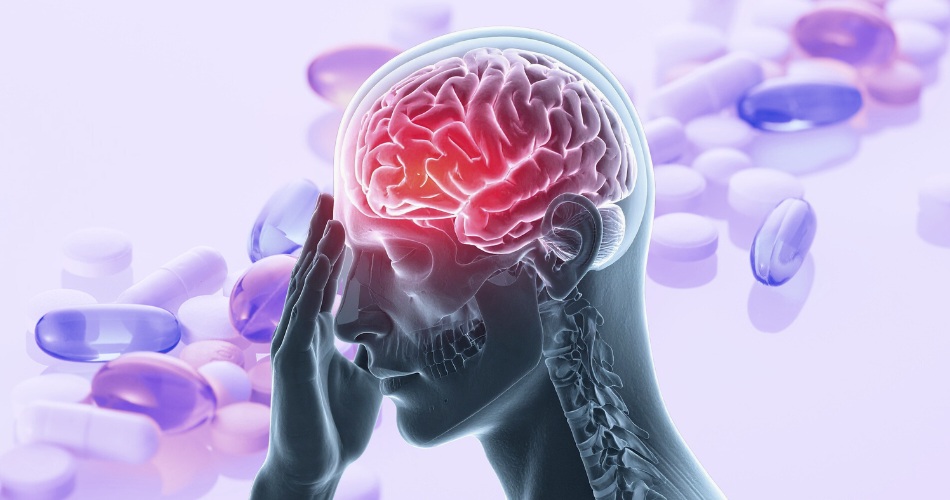
The market for brain health supplements is at an all-time high. In the U.S. alone, sales of “cognitive enhancers” now run into the billions, fueled by aging populations worried about dementia and younger consumers seeking an edge against stress, fatigue, and burnout. Capsules promising sharper memory, faster focus, and longer brain vitality are everywhere—from pharmacies to TikTok. But in 2025, the evidence has caught up with the hype, and it paints a complicated picture: some supplements may help under the right conditions, while many others offer little more than expensive reassurance.
The Evidence Behind Popular Supplements
When researchers put the most popular supplements under scrutiny, the results rarely live up to the marketing. Omega-3 fatty acids, long promoted for their brain benefits, consistently deliver cardiovascular support but show limited impact on memory or cognitive decline in otherwise healthy adults. Ginkgo biloba, once heralded as a memory enhancer, has repeatedly failed in large-scale clinical trials to demonstrate meaningful improvements. Vitamin E, sometimes marketed as neuroprotective, has shown only weak evidence for cognitive benefit and carries potential risks at high doses.
The takeaway: most of the “big name” brain boosters don’t consistently prevent decline or sharpen focus across the general population.
Where Research Looks More Promising
That said, the picture isn’t entirely bleak. Certain supplements appear useful when there’s a deficiency at play. B vitamins—particularly B12 and folate—can reverse symptoms that look like memory loss when blood levels are low. Vitamin D deficiency, which is common in older adults, is also linked to poorer brain function, and supplementation can help restore normal levels. These findings suggest that supplements aren’t useless—they’re simply not universal. Their value lies in correcting specific biological gaps, not in delivering blanket protection against aging.
The Gaps in Science and Regulation
Part of the confusion comes from how supplements are regulated. Unlike prescription medications, they don’t need FDA approval before hitting the market. Labels can make broad promises about “supporting brain health” without proving results in rigorous clinical trials. A 2019 Frontiers in Neurology review found that many supplement claims are based on small, underpowered, or industry-funded studies—research that looks persuasive in ads but doesn’t meet the standard of medical science.
Safety Isn’t Always Guaranteed
Consumers often assume supplements are harmless because they’re “natural.” But natural doesn’t mean risk-free. High-dose vitamin E has been linked to increased bleeding risk, while ginkgo can interact dangerously with blood thinners. For patients already managing chronic conditions, these interactions can be serious. Doctors caution that supplements should be treated with the same respect—and skepticism—as prescription drugs, especially when combined with other therapies.
Building a Smarter Brain Health Strategy
If the evidence for most supplements is underwhelming, what does work? Here, the research is much clearer: lifestyle factors remain the most powerful levers for brain health. Exercise improves blood flow and stimulates growth factors that support neurons. Diets rich in whole foods and omega-3s from fish promote vascular and metabolic health. Consistent, high-quality sleep allows the brain to clear toxic proteins like beta-amyloid, linked to Alzheimer’s disease. Social connection and mental stimulation reduce dementia risk more reliably than any capsule on the market. A 2020 NIH-funded review concluded that these habits provide stronger, longer-lasting protection than any single supplement to date.
How to Evaluate Claims Wisely
For consumers navigating shelves and ads, a few steps can prevent wasted money—and unnecessary risk:
- Test first. Work with your doctor to check B12, folate, and vitamin D levels before taking supplements. Benefits are clearest when deficiencies exist.
- Read labels carefully. Look for third-party certifications and avoid megadoses that exceed recommended daily allowances.
- Focus on evidence. Supplements may be useful for specific medical needs, but they are not substitutes for healthy habits, medical treatment, or prevention strategies.
Conclusion
Brain health supplements are big business because they promise something we all want: sharper minds and protection against decline. But the science shows that promise is often overstated. A few supplements may help when deficiencies are present, yet most fall short of delivering meaningful benefits for the average healthy adult.
The strongest path forward remains the basics: exercise, nutrition, sleep, and social engagement. Supplements can play a role—but only as part of a broader, evidence-based plan for brain health. In a world eager for shortcuts, the clearest message from science is this: the surest investment in your brain isn’t a capsule, but consistent, daily habits that keep it healthy for the long run.
Sources





